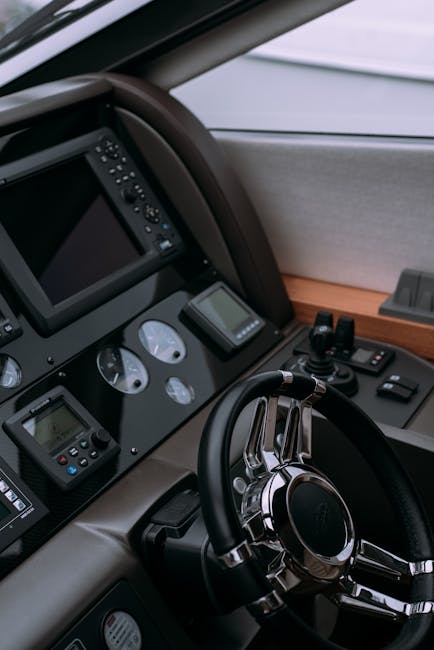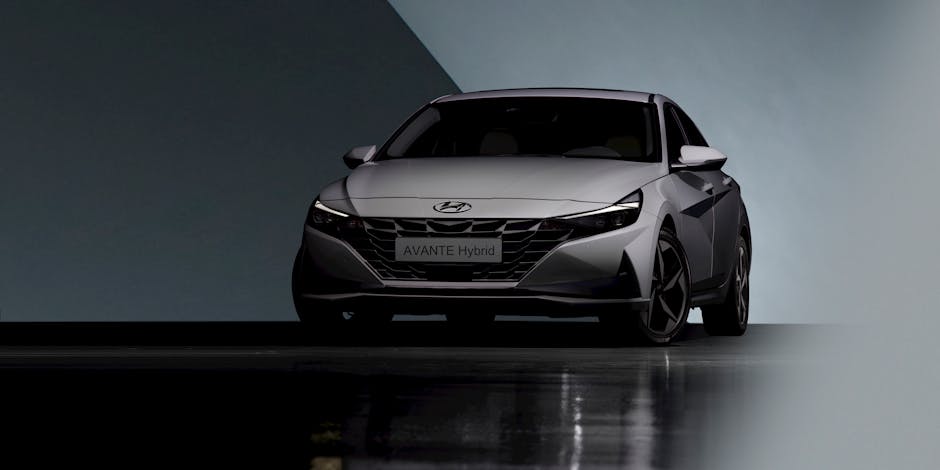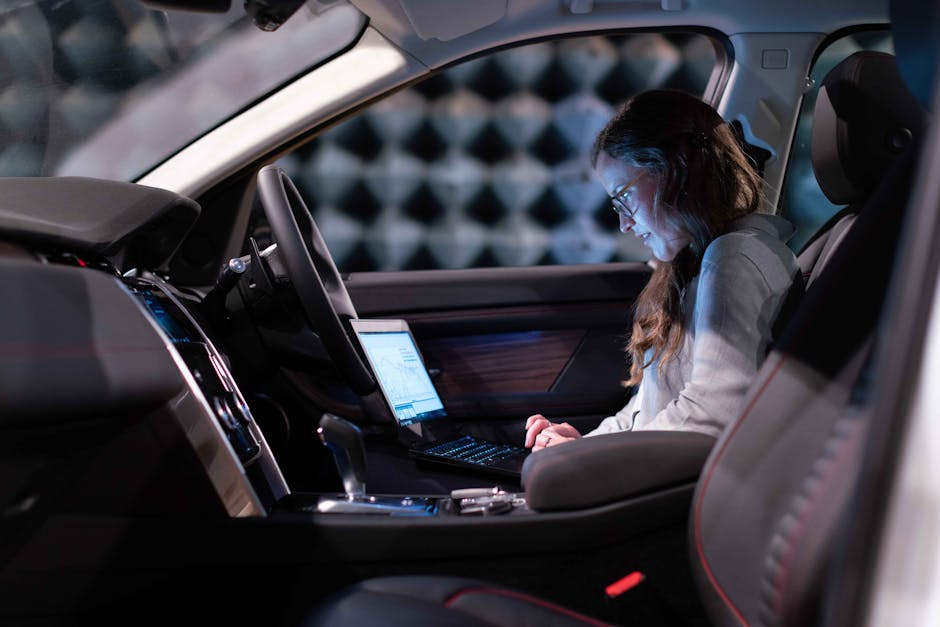First ever electric rail car mover gets to work at Port of Baltimore [video] - Related to motogp:, first, [video], work, electric
2025 MotoGP: “Circuit girls” question raised in Malaysian Parliament

Posted in Bikes, Local Bike News, MotoGP / By Mohan K Ramanujam / February 7 2025 5:03 pm.
A question was raised in Malaysian Parliament about government plans to stop the use of “circuit girls” at local motorsports events. In a written reply to Muhammad Fawwaz Mohamad Jan (PN-Permatang Pauh), Youth and Sports Minister Hannah Yeoh introduced “circuit girls serve as brand ambassadors for companies involved in events and are selected by the organiser, Dorna Sports,” reported The New Straits Times.
Yeoh further mentioned the circuit girls are selected by the organiser of MotoGP, Dorna Sports, while Sepang International Circuit (SIC) serves as event host and facilities provider. “The ministry takes note of Permatang Pauh’s feedback. Cultural and religious sensitivities are critical in a multicultural country like Malaysia,” Yeoh mentioned.
However, Dorna Sports clarified circuit girls are employed directly by the race teams and purely at their discretion, with the Spain based race organiser having no involvement. It was pointed out certain teams, like Aspar Team, do not employ circuit girls, while Ana Carrasco, Supersport 300 champion, had grid boys.
Comments about the removal of circuit girls, paddock girls, umbrella girls, race queens, amongst the many terms used to describe the brand ambassadors, have been bandied about for years. With the 2025 MotoGP Winter Test currently on-going at SIC, the season kicks-off at the Grand Prix of Thailand in Buriram on February 28 to March 2.
Looking to sell your car? Sell it with Carro.
Damage to the batteries' separator could lead to shorts and/or fires.
Recall campaigns from Stellantis, Ford, and Audi allow replacement of battery pa...
10% discount when you renew your car insurance.
Compare prices between different insurer providers and use the promo code 'PAULTAN10' when you make yo...
Tesla sales in China are relatively fine despite the added complexity of managing the production switch to the new Mode Y, Tesla’s best-selling model....
Milestone: TRC reaches $2 billion in commercial ZEV funding

Consulting firm TRC has made a name for itself in the clean trucking space both for managing the ACT Expo and helping commercial fleets navigate the increasingly complex world of ZEV incentives. This week, the enterprise reached a major milestone: $2 billion in funding!
Over the last few years, GNA (which was acquired by TRC in 2023) has developed and submitted more than 650 successful grant applications and funding requests on behalf of its clients, helping them to achieve their environmental and sustainability goals while saving money on total cost of ownership in the process.
“We feel privileged to assist forward-thinking companies to achieve their goals to develop and demonstrate the commercial use of some of the most cutting-edge and advanced technologies in the marketplace today,” expressed Erik Neandross, President, Clean Transportation Solutions at TRC. “Managing multi-million-dollar grant applications can be daunting, but our team’s tenacity and knowledge ensures that our clients will successfully achieve their objectives while they remain focused on their core business activities.”.
Noteworthy projects that received funding through TRC’s support include:
Over $40 million for the JETSI Project, which deployed 100 zero-emission Class 8 trucks across Southern California to operationalize zero-emission freight movement at scale.
$44 million for Volvo LIGHTS, an initiative that implemented a blueprint for the complete ecosystem needed to successfully deploy commercial battery-electric trucks.
$95 million for the Nevada Gold Mines 200 MW Solar Project, accelerating the decarbonization of mining operations in Northern Nevada.
$[website] million for the Frito-Lay Zero and Near Zero Emission Freight Facility (ZANZEFF) Project in Modesto, CA, to deploy an array of commercially available and pre-commercial ZE and NZE technologies as well as renewable power generation and energy storage.
$5 million for Mariposa County Resource Conservation District to develop, demonstrate and deploy environmentally and economically sustainable biomass-to-energy systems for the forest and food waste sectors.
$[website] million for Foster Farms for projects to modify parking yards with EV charging parking stalls and implement emissions-reducing mechanical upgrades at five Foster Farms plants.
$[website] million for Otter Tail Power enterprise to enhance grid resiliency with next-generation technology.
TRC’s efforts have helped clients to tap funding from information such as Volkswagen Settlement Funds, Federal Highway Administration, DOE, South Coast Air Quality Management District (AQMD), California Air Resources Board (CARB), California Energy Commission (CEC), Low Carbon Fuel Standard (LCFS) programs, and others.
Joe Annotti is a senior executive dedicated to clean transportation and energy independence initiatives at TRC, and has been a great guest on several of my podcasts – most in recent times Quick Charge on the Electrek Daily channel. You can check out that episode, above, then let us know what you think of TRC’s fleet decarbonization efforts in the comments.
SOURCE | IMAGES: TRC; photo by the author.
With a record 358,100 vehicles sold last year, demand for Perodua car...
Just over a year after the world premiere of the sixth-generat...
10% discount when you renew your car insurance.
Compare prices between different insurer providers and use the promo code 'PAULTAN10' when you make yo...
First ever electric rail car mover gets to work at Port of Baltimore [video]
![First ever electric rail car mover gets to work at Port of Baltimore [video]](/images/automotive-tech/picture/image_283.jpg)
The Helen Delich Bentley Port of Baltimore has revealed a first for the contemporary American maritime industry: a battery-electric rail car mover that can organize the rail yard without dirtying up the air around it.
Built by the Marmon Rail’s Italian Zephir division, the LOK [website] model rail car mover elements an 80-volt rechargeable battery pack sending current to a pair of 40 kW (about 50 hp) high-torque brushless motors. That may not sound like a lot in a world of 650 hp Kias and 1000 hp Teslas, but it’s enough to generate a drawbar pull (read: towing force) of more than 39,000 lbs. … all while generating zero tailpipe emissions.
“At this terminal, the asset will be used to help with intermodal cargo exchange,” noted Matt Stahl, Mid-Atlantic terminal general manager for global shipping gurus Wallenius Wilhelmsen, who operate the Zephir. “We can do it with our own asset, without any assistance.”.
Wallenius Wilhelmsen is using the Zephir to move rail cars loaded with heavy lift, farm and construction equipment, and military cargo within the Dundalk Marine Terminal, and indicates it will remove over 180 tons of harmful carbon emissions per year.
You can check out the promotional video released by the Port of Baltimore to celebrate the Zephir’s deployment, below, then let us know what you think in the comments.
Historically-conscious readers already know that the key word in that first paragraph is contemporary, because the Zephir is very much a case of “what’s old is new again,” ’ Stuart Chirls. Chirls explains that the Zephir, “harks back [sic] to battery-powered railcar movers built by the Pennsylvania Railroad in 1912, rubber-tired ‘locomotives’ used to switch freight cars around the narrow streets of the Baltimore waterfront on track curvature too tight for standard motive power.”.
If you want to learn more about the Pennsylvania Railroads’ 100-year lead on electric rail car switcher technology, check out this article on Railfan, which includes the photos below plus a whole lot more.
insights | IMAGES: Port of Baltimore, via Freightwaves, Railfan.
Australians are warming to Nissan’s unique take on hybrid powertrain technology, and the Japanese auto brand is looking to further expand its e-Power ...
10% discount when you renew your car insurance.
Compare prices between different insurer providers and use the promo code 'PAULTAN10' when you make yo...
In the Electrek Podcast, we discuss the most popular news in the world of sustainable transport and energy. In this week’s episode, we discuss Tesla s...
Market Impact Analysis
Market Growth Trend
| 2018 | 2019 | 2020 | 2021 | 2022 | 2023 | 2024 |
|---|---|---|---|---|---|---|
| 8.3% | 10.0% | 10.5% | 11.6% | 12.3% | 12.7% | 12.8% |
Quarterly Growth Rate
| Q1 2024 | Q2 2024 | Q3 2024 | Q4 2024 |
|---|---|---|---|
| 10.9% | 11.7% | 12.4% | 12.8% |
Market Segments and Growth Drivers
| Segment | Market Share | Growth Rate |
|---|---|---|
| Connected Cars | 35% | 14.2% |
| Autonomous Driving | 22% | 18.5% |
| EV Technology | 28% | 21.9% |
| Telematics | 10% | 9.7% |
| Other Automotive Tech | 5% | 6.3% |
Technology Maturity Curve
Different technologies within the ecosystem are at varying stages of maturity:
Competitive Landscape Analysis
| Company | Market Share |
|---|---|
| Tesla | 16.9% |
| Waymo | 12.3% |
| NVIDIA DRIVE | 10.7% |
| Bosch | 9.5% |
| Continental | 7.8% |
Future Outlook and Predictions
The 2025 Motogp Circuit landscape is evolving rapidly, driven by technological advancements, changing threat vectors, and shifting business requirements. Based on current trends and expert analyses, we can anticipate several significant developments across different time horizons:
Year-by-Year Technology Evolution
Based on current trajectory and expert analyses, we can project the following development timeline:
Technology Maturity Curve
Different technologies within the ecosystem are at varying stages of maturity, influencing adoption timelines and investment priorities:
Innovation Trigger
- Generative AI for specialized domains
- Blockchain for supply chain verification
Peak of Inflated Expectations
- Digital twins for business processes
- Quantum-resistant cryptography
Trough of Disillusionment
- Consumer AR/VR applications
- General-purpose blockchain
Slope of Enlightenment
- AI-driven analytics
- Edge computing
Plateau of Productivity
- Cloud infrastructure
- Mobile applications
Technology Evolution Timeline
- Technology adoption accelerating across industries
- digital transformation initiatives becoming mainstream
- Significant transformation of business processes through advanced technologies
- new digital business models emerging
- Fundamental shifts in how technology integrates with business and society
- emergence of new technology paradigms
Expert Perspectives
Leading experts in the automotive tech sector provide diverse perspectives on how the landscape will evolve over the coming years:
"Technology transformation will continue to accelerate, creating both challenges and opportunities."
— Industry Expert
"Organizations must balance innovation with practical implementation to achieve meaningful results."
— Technology Analyst
"The most successful adopters will focus on business outcomes rather than technology for its own sake."
— Research Director
Areas of Expert Consensus
- Acceleration of Innovation: The pace of technological evolution will continue to increase
- Practical Integration: Focus will shift from proof-of-concept to operational deployment
- Human-Technology Partnership: Most effective implementations will optimize human-machine collaboration
- Regulatory Influence: Regulatory frameworks will increasingly shape technology development
Short-Term Outlook (1-2 Years)
In the immediate future, organizations will focus on implementing and optimizing currently available technologies to address pressing automotive tech challenges:
- Technology adoption accelerating across industries
- digital transformation initiatives becoming mainstream
These developments will be characterized by incremental improvements to existing frameworks rather than revolutionary changes, with emphasis on practical deployment and measurable outcomes.
Mid-Term Outlook (3-5 Years)
As technologies mature and organizations adapt, more substantial transformations will emerge in how security is approached and implemented:
- Significant transformation of business processes through advanced technologies
- new digital business models emerging
This period will see significant changes in security architecture and operational models, with increasing automation and integration between previously siloed security functions. Organizations will shift from reactive to proactive security postures.
Long-Term Outlook (5+ Years)
Looking further ahead, more fundamental shifts will reshape how cybersecurity is conceptualized and implemented across digital ecosystems:
- Fundamental shifts in how technology integrates with business and society
- emergence of new technology paradigms
These long-term developments will likely require significant technical breakthroughs, new regulatory frameworks, and evolution in how organizations approach security as a fundamental business function rather than a technical discipline.
Key Risk Factors and Uncertainties
Several critical factors could significantly impact the trajectory of automotive tech evolution:
Organizations should monitor these factors closely and develop contingency strategies to mitigate potential negative impacts on technology implementation timelines.
Alternative Future Scenarios
The evolution of technology can follow different paths depending on various factors including regulatory developments, investment trends, technological breakthroughs, and market adoption. We analyze three potential scenarios:
Optimistic Scenario
Rapid adoption of advanced technologies with significant business impact
Key Drivers: Supportive regulatory environment, significant research breakthroughs, strong market incentives, and rapid user adoption.
Probability: 25-30%
Base Case Scenario
Measured implementation with incremental improvements
Key Drivers: Balanced regulatory approach, steady technological progress, and selective implementation based on clear ROI.
Probability: 50-60%
Conservative Scenario
Technical and organizational barriers limiting effective adoption
Key Drivers: Restrictive regulations, technical limitations, implementation challenges, and risk-averse organizational cultures.
Probability: 15-20%
Scenario Comparison Matrix
| Factor | Optimistic | Base Case | Conservative |
|---|---|---|---|
| Implementation Timeline | Accelerated | Steady | Delayed |
| Market Adoption | Widespread | Selective | Limited |
| Technology Evolution | Rapid | Progressive | Incremental |
| Regulatory Environment | Supportive | Balanced | Restrictive |
| Business Impact | Transformative | Significant | Modest |
Transformational Impact
Technology becoming increasingly embedded in all aspects of business operations. This evolution will necessitate significant changes in organizational structures, talent development, and strategic planning processes.
The convergence of multiple technological trends—including artificial intelligence, quantum computing, and ubiquitous connectivity—will create both unprecedented security challenges and innovative defensive capabilities.
Implementation Challenges
Technical complexity and organizational readiness remain key challenges. Organizations will need to develop comprehensive change management strategies to successfully navigate these transitions.
Regulatory uncertainty, particularly around emerging technologies like AI in security applications, will require flexible security architectures that can adapt to evolving compliance requirements.
Key Innovations to Watch
Artificial intelligence, distributed systems, and automation technologies leading innovation. Organizations should monitor these developments closely to maintain competitive advantages and effective security postures.
Strategic investments in research partnerships, technology pilots, and talent development will position forward-thinking organizations to leverage these innovations early in their development cycle.
Technical Glossary
Key technical terms and definitions to help understand the technologies discussed in this article.
Understanding the following technical concepts is essential for grasping the full implications of the security threats and defensive measures discussed in this article. These definitions provide context for both technical and non-technical readers.


